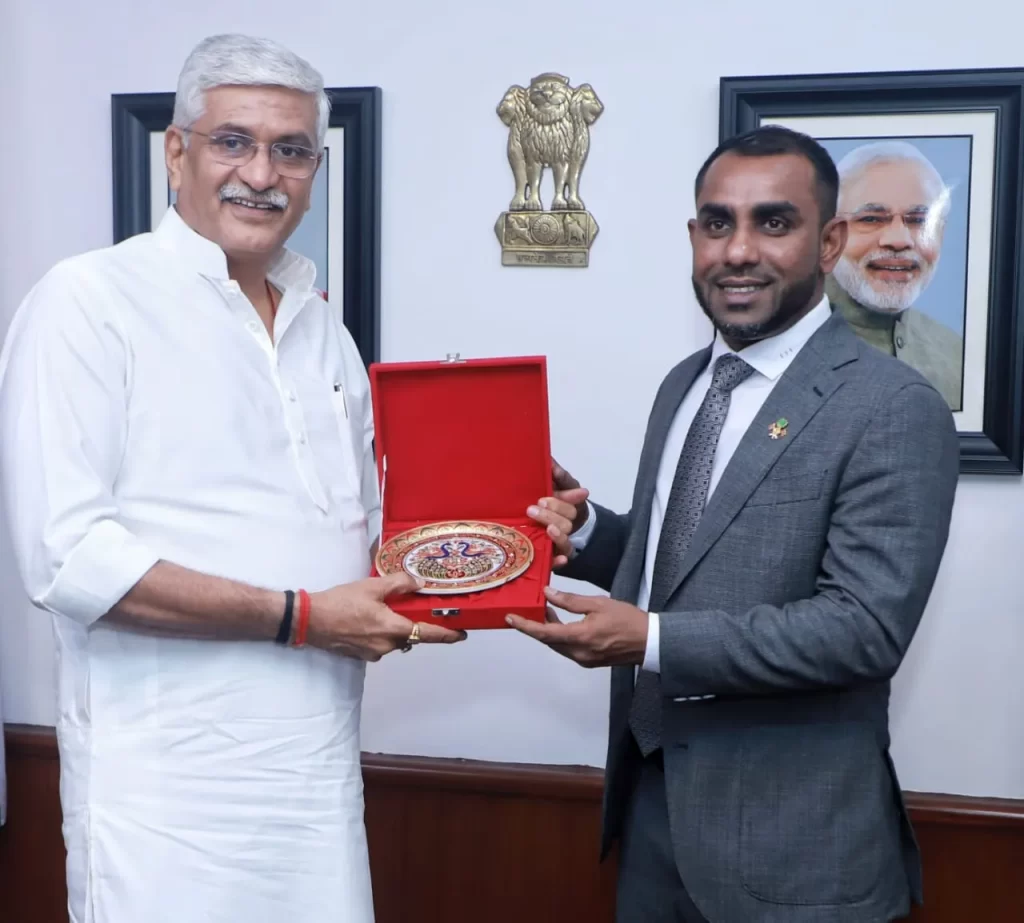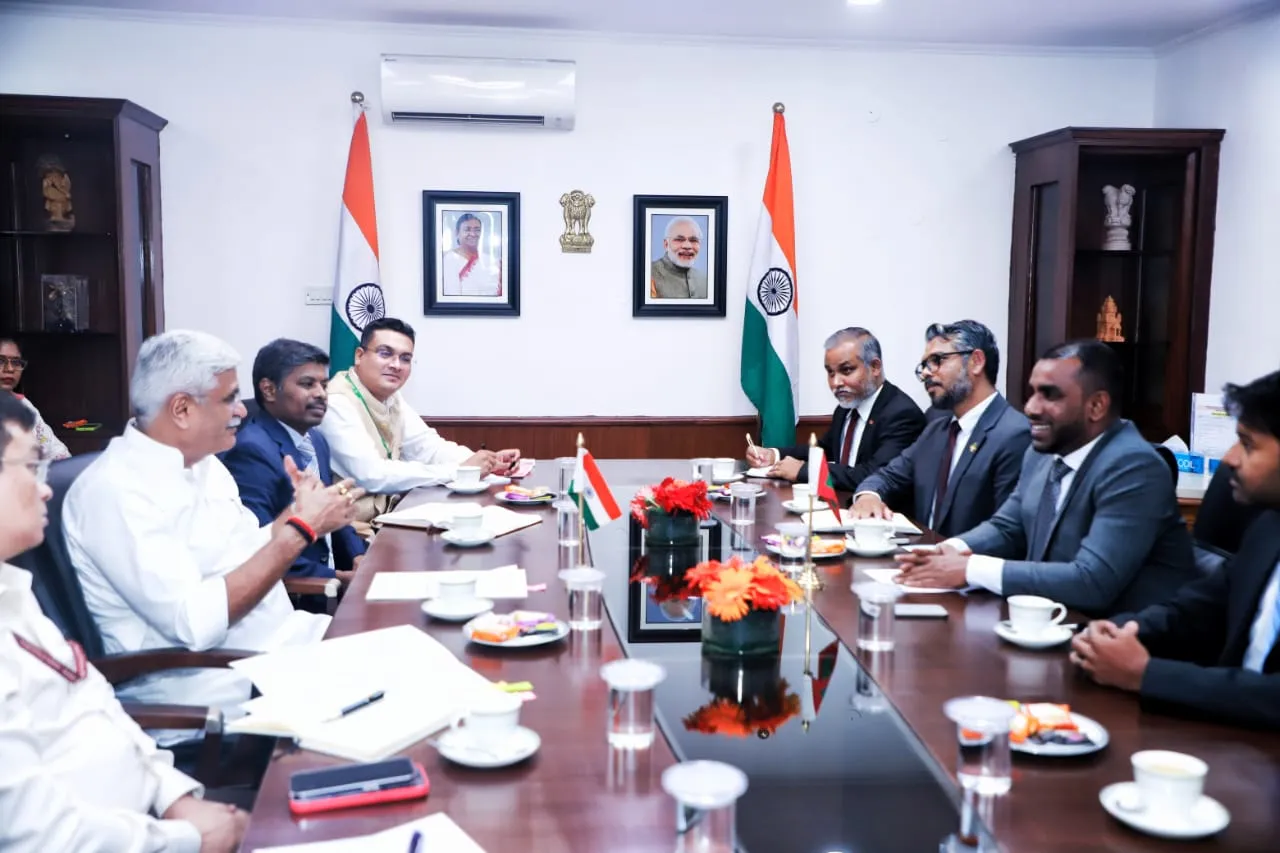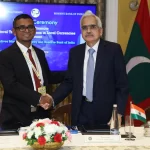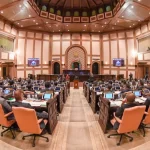Malé, Maldives — Maldives Tourism Minister Ibrahim Faisal arrived in India yesterday for a six-day visit, spearheading the “Welcome India” initiative aimed at bolstering the Maldives’ appeal as a premier holiday destination for Indian travelers. This campaign features a series of tourism roadshows in Delhi, Mumbai, and Bengaluru from July 30 to August 3, as reported by The Print.
This push for tourism comes in response to a 42% decline in Indian tourist arrivals in the first four months of this year compared to the same period in 2023. Just last year, Indian tourists were the largest group of foreign visitors to the Maldives, with China ranking third.

India-Maldives Relations: A Strategic and Complex Alliance
The Maldives’ strategic position in the Indian Ocean has long anchored its ties with India, driven by India’s ‘Neighborhood First’ policy. Historically, the two nations have enjoyed robust diplomatic relations, with India providing substantial economic and security assistance. However, this relationship has faced turbulence, particularly during the presidency of Abdulla Yameen (2013-2018), who fostered nationalist, anti-India sentiments while aligning more closely with China.
The election of President Ibrahim Solih in 2018 marked a thaw in relations, with his ‘India First’ policy emphasizing economic and defense partnerships with India. Despite these efforts, anti-India sentiments were rekindled in 2020 by a coalition between the Progressive Party of Maldives (PPM) and the People’s National Congress (PNC), leading to the ‘India Out’ campaign. This movement criticized India’s involvement in Maldivian affairs, alleging expansionist ambitions and raising concerns over India’s investments and defense partnerships.
With the recent election of President Dr. Mohammed Muizzu, echoes of Yameen’s policies have returned, straining diplomatic relations anew. This shift is exemplified by the departure of 76 Indian defense personnel in May 2024, following Muizzu’s demand for their withdrawal. This move has disrupted several joint defense projects, highlighting the complexities in the current India-Maldives relationship.
India’s Strategic Role
India’s relationship with the Maldives dates back to its recognition of Maldivian independence in 1965. India has been a critical ally, providing budgetary support, infrastructure development, and engaging in numerous bilateral agreements to bolster cybersecurity, maritime security, and regional stability. This support includes significant defense collaborations, such as training for the Maldivian National Defence Force (MNDF) and building defense infrastructure.
Despite recent setbacks, such as the withdrawal of Indian defense personnel, India’s contributions remain significant. Between 2021 and 2022, India provided 300 training vacancies to the MNDF, and over the past decade, has trained more than 1,400 MNDF personnel. Key projects include the construction of Ekatha Harbour, an Extended Coastal Surveillance radar system, and the Senahiya MNDF military hospital. Additionally, India has supplied various defense equipment and engaged in joint military exercises to enhance the Maldives’ defense capabilities.
Economic Aid and Development
The Maldives has become a key beneficiary of India’s ‘Neighborhood First’ policy. In August 2022, India extended over $250 million in financial aid to the Maldives, and by May 2024, further supported the country with a $50 million treasury bill, following a special request during Foreign Minister Moosa Zameer’s visit to India.
This financial aid is complemented by an $800 million line of credit from the Exim Bank of India, which funds extensive infrastructure and community development projects in the Maldives. Key initiatives include water and sanitation improvements on 34 islands, the Addu Development Project (roads and land reclamation), and the redevelopment of Hanimaadhoo and Gan International Airports. Additionally, expansion projects for the Maldives Industrial Fisheries Company in Felivaru and Gemanafushi are underway. These efforts reflect India’s commitment to fostering robust bilateral relations and regional stability.
India’s support also extends to humanitarian assistance during natural disasters. Given the Maldives’ dispersed islands and transportation challenges, India’s role in medical evacuations is crucial. Since 2010, Indian defense aircraft, equipped with advanced medical facilities, have been deployed to swiftly evacuate critically ill or injured individuals to mainland healthcare centers. Over the past five years, these aircraft have rescued over 500 lives, including infants and elderly individuals, even in adverse weather conditions, significantly enhancing emergency medical care across the Maldives.
Significant initiatives include cybersecurity agreements, water and sanitation projects on 34 islands, the Addu Development Project, and airport redevelopments. These efforts underscore India’s commitment to fostering robust bilateral relations and regional stability.
China’s Influence
China’s growing presence in the Maldives has raised geopolitical concerns, with fears of economic dependency and potential erosion of Maldivian sovereignty. During Yameen’s presidency, the Maldives embraced China’s Belt and Road Initiative (BRI), leading to several Agreements and significant infrastructure projects funded by Chinese loans. By 2018, the Maldives owed around $1.5 billion to China, a debt that has since ballooned to $5.6 billion.
Analysts warn that this debt could lead to a ‘debt-trap’ scenario, similar to Sri Lanka’s experience with the Hambantota Port. Beijing’s refusal to restructure Maldivian debt during economic crises underscores the risks of heavy reliance on Chinese financial support.
Moving Forward
Despite the challenges, recent diplomatic efforts signal a potential reset in India-Maldives relations. President Muizzu’s visit to New Delhi in May 2024, the first high-level visit since his election, marked a significant step towards reconciliation. The Third High-Level Core Group meeting in Malé in March 2024 further highlighted progress in various bilateral initiatives, including replacing Indian military personnel with civilians and enhancing development projects.
The Maldives’ active participation in regional security initiatives, despite its engagements with China, underscores its commitment to maintaining a balanced foreign policy. The path forward for India-Maldives relations remains complex, but ongoing diplomatic engagements and cooperative efforts signal a promising trajectory for these two Indian Ocean neighbors.
The information is sourced from archival records.












